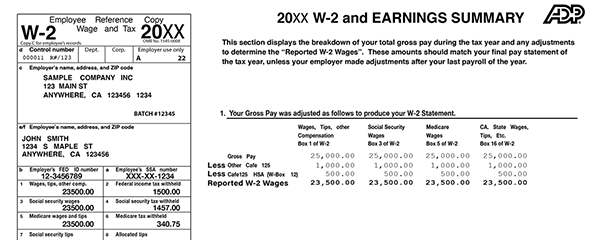HR Newsletter
Posted on: January 17, 2024
9 Pay Practices to Avoid with Exempt Employees

The federal Fair Labor Standards Act (FLSA) requires employers to pay most employees overtime pay for all hours worked in excess of 40 in a workweek (some states require overtime in additional situations). The FLSA allows for exemptions from the overtime requirement for certain employees who work in administrative, professional and executive jobs (known as "exempt" employees).
To be considered "exempt," these employees must generally satisfy three tests:
- Salary-level test. Employees must receive a salary of at least $684 per week (this could change this year).
- Salary-basis test. With very limited exceptions, the employer must pay employees their full salary in any week they perform work.
- Duties test. The employee's primary duties must meet certain criteria.
However, even if an employee initially satisfies the tests for exempt status, you can later jeopardize this classification with improper pay practices. Here are nine pay practices to avoid with exempt employees.
#1 to avoid: Docking salary for poor performance, such as an employee who failed to deliver an important project on time
Reason: Exempt employees must generally receive their full salary regardless of the quality or quantity of work performed, provided they work any part of the workweek. You can’t make deductions to exempt employees’ salaries for performance issues.
#2 to avoid: Reducing an exempt employee’s salary for misconduct without having a written policy
Reason: Under federal rules, you may make deductions from exempt employees’ salaries for unpaid disciplinary suspensions of one or more full days imposed in good faith for serious misconduct, such as sexual harassment, workplace violence, drug or alcohol use, or for violations of state or federal laws. However, the suspension must be imposed pursuant to a written policy applicable to all employees.
#3 to avoid: Making a deduction because they attend a two-hour parent-teacher conference
Reason: Under the FLSA, when an exempt employee is absent for personal reasons (other than sickness or disability), you may make deductions from their salaries for full-day absences, but you are prohibited from making partial-day deductions.
#4 to avoid: Requiring exempt employees to work the day before and after a company holiday in order to receive "holiday pay"
Reason: To help reduce absenteeism around holidays, some employers require nonexempt employees to work the day before and after the holiday to receive holiday pay for a day off, unless they scheduled the time off in advance. This type of policy can’t be applied to exempt employees. If you choose to close for a holiday, exempt employees must generally receive their full salary as long as they work any part of the workweek.
#5 to avoid: Reducing salaries for emergency closings
Reason: When the company closes for less than a full workweek for weather or other emergencies, exempt employees must still receive their full salary.
#6 to avoid: Paying part-time exempt employees less than $684/week
Reason: Part-time employees may be classified as exempt, but they must still receive a weekly salary of at least $684 (as well as meet the duties test for the exemption).
#7 to avoid: Reducing exempt employees’ compensation for sick days
Reason: You may reduce exempt employees' salaries for full-day absences due to sickness but generally only if the employee receives paid sick leave. In this case, the employee wouldn’t generally see a reduction in actual compensation. Instead, any reduction in salary is offset by the paid sick leave received.
|
Note: Under federal rules, deductions may be made for full-day absences due to sickness before the employee has qualified for the paid sick leave plan or after the employee has exhausted the leave allowance under the plan. For example, an employer's sick leave plan provides each employee with 10 paid sick days per year. An employee must work for the employer 90 days before becoming eligible for paid sick leave. In this example, under federal rules, a deduction of one or more full days may be made from the salary of an exempt employee who is absent due to sickness:
|
#8 to avoid: Violating limits on using bonuses to meet the salary requirement
Reason: Under federal law, employers may satisfy up to 10 percent of the federal salary requirement for exemption ($68.40 per week) with nondiscretionary bonuses, incentive payments, and commissions. For each workweek, you must pay the exempt employee on a salary basis at least 90 percent ($615.60 per week) of the standard salary level. The remaining portion of the required salary level (up to 10 percent) may be fulfilled through payment of nondiscretionary bonuses or incentive payments as long as the payments are paid at least annually.
#9 to avoid: Failing to ensure compliance with state requirements
Reason: Many states have their own tests and rules for employees classified as exempt from overtime. For instance, some require higher salaries and/or prohibit employers from using bonuses to satisfy part of the salary requirement.
Conclusion
Employers with exempt employees should ensure they comply with federal and state rules for classifying and paying exempt employees and avoid improper deductions and other practices that may jeopardize the employee’s exempt status.




